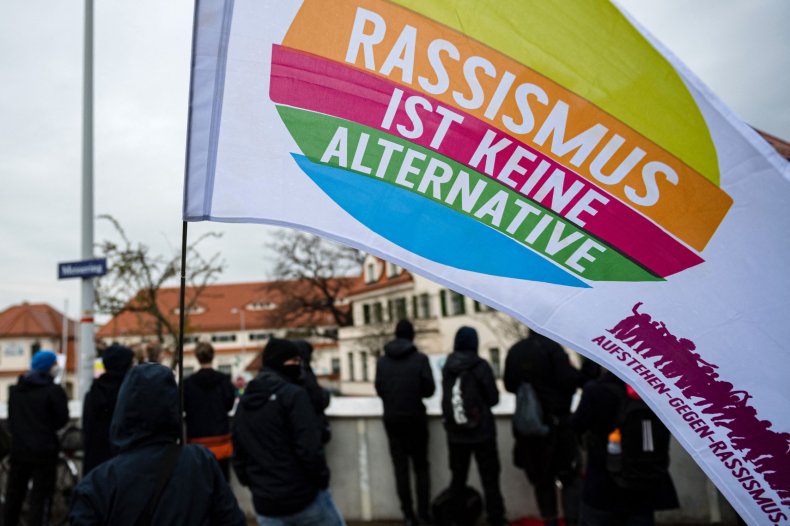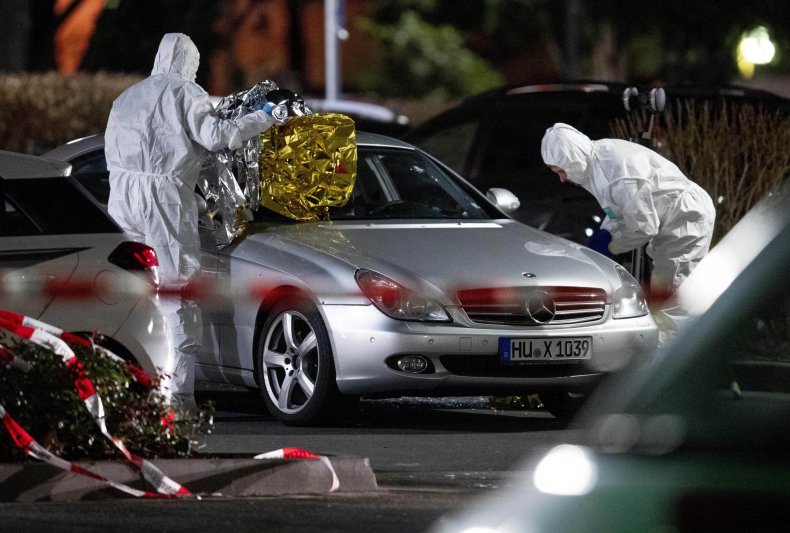Germany Sees 72 Percent Increase in Anti-Immigrant Crimes
Germany recorded a 72.4 percent increase in anti-immigrant crimes in 2020 – up to 5,298 total cases – as officials warned Tuesday that the country is experiencing a dangerous rise in far-right violence.
Interior Minister Horst Seehofer said in total, far-right crimes rose 5.65 percent in 2020, and accounted for more than half of all "politically motivated" crimes.
"This shows again that right-wing extremism is the biggest threat for our country," Seehofer said Tuesday, according to the Associated Press.
In February 2020, the country saw its deadliest anti-immigrant attack when nine immigrants were killed near Frankfurt, Germany, after a gunman opened fire and called for the "complete extermination" of many "races or cultures in our midst," the AP reported.
Authorities have since raised concerns that the far-right Alternative for Germany party, or AFD, which placed third in the country's 2017 election and has grown in influence, has played a role in stoking a climate of hatred toward immigrants and the government.

For more reporting from the Associated Press, see below.
German security agencies have warned of the growing threat of violent far-right extremism. In July 2019, a regional politician from Chancellor Angela Merkel's party was killed by a neo-Nazi; three months later, a gunman tried to force his way into a synagogue on Yom Kippur, killing two people.
Seehofer said antisemitic crimes in Germany were up 15.7 percent in 2020 over 2019 with 2,351 total incidents — 94.6 percent of which were committed by a far-right suspect.
Of the total, 62 were acts of violence while the majority were antisemitic hate speech and other related crimes, frequently on the internet or over social media, Seehofer said.
"This development in Germany is not only troubling, but in view of our history, deeply shameful," he said.
Moshe Kantor, president of the European Jewish Congress, said the German numbers highlighted a broader issue.
"This is a wake-up call, not just for Germany, but for the whole world," he said. "These figures should ring alarm bells, because we are seeing similar trends across the Western world."
Many in the AfD have expressed support for, and participated in, the regular protests in Germany against lockdown measures, organized by the Querdenker movement. The demonstrations have become increasingly violent, and the country's domestic intelligence service last month said it had put some members of the movement under observation.
The protests have brought together a broad range of demonstrators, including people opposing vaccinations, those who deny the existence of the coronavirus, mask opponents, conspiracy theorists and others.
Seehofer said the protests have also attracted neo-Nazis and other right-wing extremists, and have regularly become violent, targeting police and the media. Seehofer said of the 260 reported crimes against journalists, 112 were related to protests against coronavirus restrictions.
"I want to say here very clearly: These acts of violence are no longer about exercising a constitutional right (to demonstrate), but are acts of violence of a criminal nature that I condemn in the strongest possible terms," he said.


